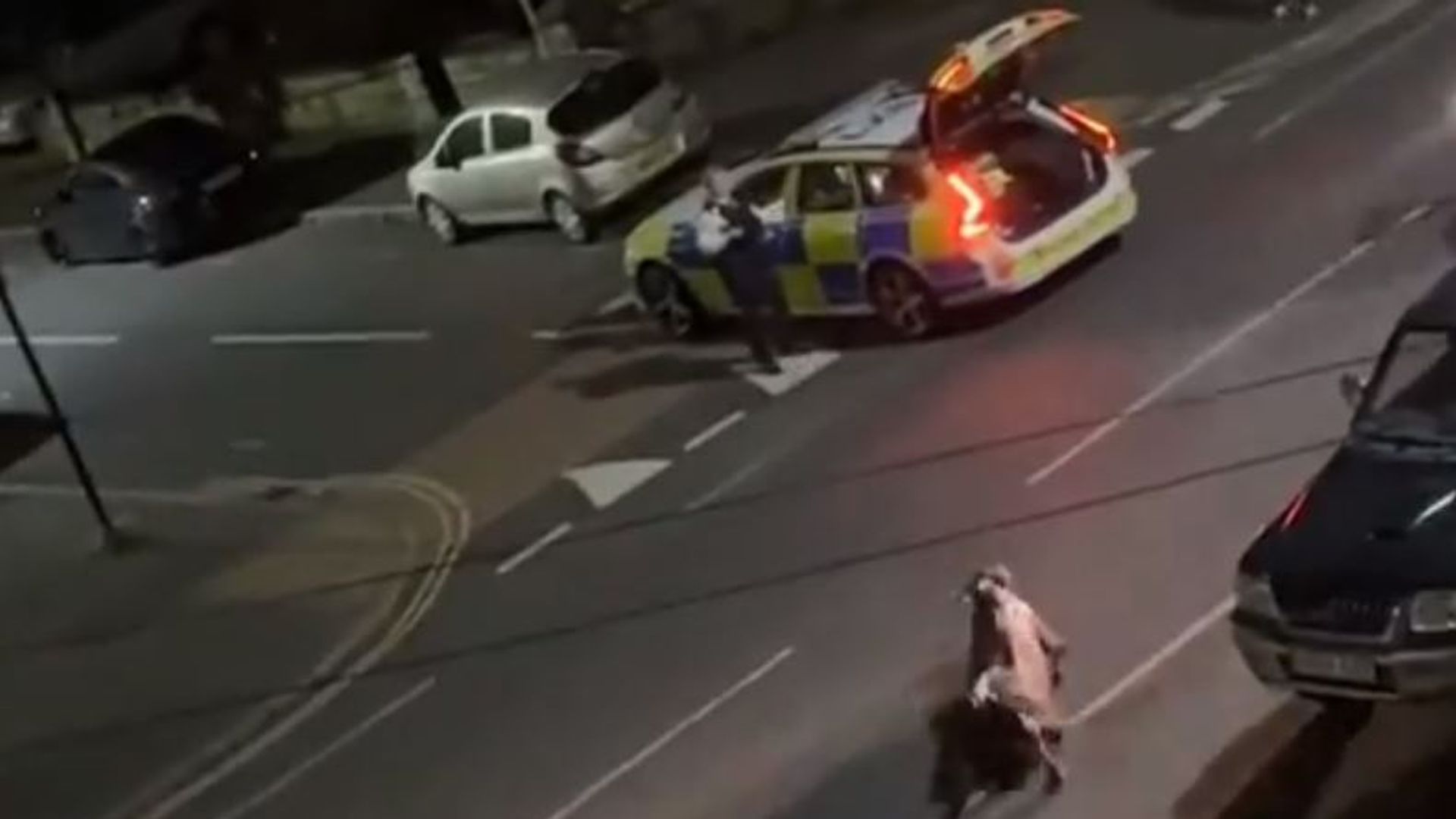British investigators have smashed two Russian money-laundering networks that were helping criminal gangs hide billions of pounds in drugs, ransomware and espionage operations.
The international investigation headed by the National Crime Agency has led to 84 arrests and the seizure of more than £20m in cash and cryptocurrency.
The NCA said the Smart network was used to fund Russian spying operations from late 2022 to the summer of 2023, but would not discuss details.”
Over several years Operation Destabilise involved the Metropolitan Police, HM Customs, the UK Border Force and Crown Prosecution Service, police in Ireland and Jersey and law enforcement agencies in the United States, France and the United Arab Emirates.
Investigators claim to have disrupted two networks known as Smart and TGR whose money-laundering activities covered 30 countries.
They would not discuss evidence they say they have of the networks’ involvement in Russian spying missions.
They are announcing their success as the US imposes new sanctions on five suspects, including the network heads, and on four businesses.
NATO chief says Putin using Ukraine as ‘testing ground for experimental missiles’ and is ‘not interested in peace’
Who are the Syrian rebels who have attacked Aleppo and want to head to Damascus?
Aleppo: Rebels ‘take control’ of airport as thousands of fighters seize most of Syria’s second-biggest city
One of the sanctioned businesses is TGR Corporate Concierge, with an address in North London. It is believed to be a front for criminal activity.
The NCA says it uncovered a complex scheme in which the networks typically collected cash from drug traffickers in one country and converted it into cryptocurrency extorted by cyber criminals in another, so disguising the source of income.
It reduced the movement of cash across international borders and laundered profits for both groups of criminals.
The Irish crime family syndicate the Kinahans, based in Dubai, is one of the groups who used the networks to disguise their profits from drug trafficking and firearms supply.
An Irish court has named Daniel Kinahan, a boxing promoter, as the head of one of Europe’s most prominent drugs gangs. The US Office of Foreign Assets Control branded the Kinahans “a murderous organisation”.
Rob Jones, the NCA’s Director General of Operations said: “Operation Destabilise has exposed billion-dollar money laundering networks operating in a way previously unknown to international law enforcement or regulators.
“For the first time, we have been able to map out a link between Russian elites, crypto-rich cyber criminals, and drugs gangs on the streets of the UK. The thread that tied them together – the combined force of Smart and TGR – was invisible until now.
“The NCA and partners have disrupted this criminal service at every level. We have identified and acted against the Russians pulling the strings at the very top, removing the air of legitimacy that enabled them to weave illicit funds into our economy.
“We also took out the key coordinators that enabled the cash-based element of their operation in the UK, making it extremely difficult for them to operate here and sending a clear message that this is not a safe haven for money laundering.”
Be the first to get Breaking News
Install the Sky News app for free
In a statement the NCA named Ekaterina Zhdanova, a Russian, as the head of the Smart network. She has been arrested on other charges and is in custody in France.
Read more:
Letby interviewed over more baby deaths
Inside the ‘wild west’ court system
Doorstep killer still at large
George Rossi, a Ukrainian national, was named as the boss of the TGR network.
The two groups co-ordinated their criminal activities.
One cash courier organisation was said to have done cash handovers in 55 different locations across the UK mainland and the Channel Islands in a four-month period, working for at least 22 suspected criminal groups.
Fawad Saiedi, a London-based courier, helped launder more than £15m and was jailed for over four years.
Two other men who managed couriers in the UK, Semen Kuskov and Andrii Dzektsa, were involved in the laundering of £12m and were jailed for five years.
The NCA said the networks helped the Ryuk ransomware group, which was sanctioned by the UK in 2023, to export at least £27m from 149 British victims, including hospitals, schools, businesses and local authorities. It believes the group’s true impact to be much higher.






